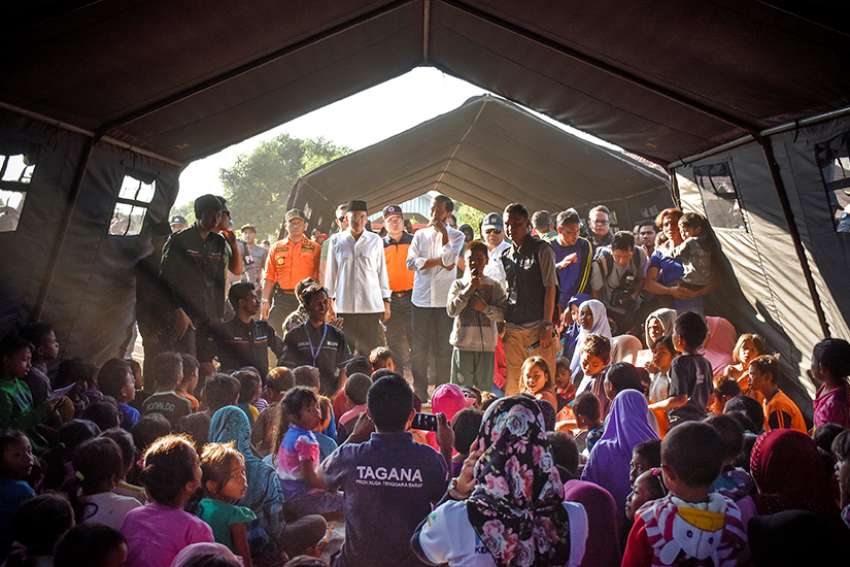The magnitude 6.4 quake struck the island July 29, killing at least 16 people, injuring 355 others and forcing more than 5,100 people from their homes, according to the country's national disaster agency.
Through July 30, 276 aftershocks had hit the island and other areas in West Nusa Tenggara province, ucanews.com reported.
At least 1,400 homes, seven schools, five health facilities, and 22 places of worship were badly damaged.
West Nusa Tenggara Gov. Muhammad Zainul Majdi declared a five-day state of emergency, ending Aug. 2.
"Catholics have started to collect aid. Catholic schools have collected tents, and my parishioners have collected rice and instant noodles," Father Laurensius Maryono of St. Mary Immaculate Parish in Mataram, the provincial capital, told ucanews.com.
"St. Anthony Catholic Hospital has sent teams of medical workers to serve those affected by the quake in Sembalun sub-district, the worst-hit area," he said.
The parish's emergency response team – along with teams from the Diocese of Denpasar and the Mataram chapter of the Union of Catholic University Students of the Republic of Indonesia – went to the district July 31.
"We had to assess the current situation and what aid the victims really need. We're focusing on things government and other organizations tend to overlook," Father Maryono said.
Father Evensius Dewantoro, who heads the Denpasar Diocese's Socio-Economic Development Commission, said the teams would stay on site for three days.
"Then we will submit recommendations to the bishop and Caritas Indonesia," he said.
Adrianus Umbu Zogara, who heads the student group, said members had collected rice and instant noodles to distribute to victims.
"We've also received financial aid," he said. "We will use the money to buy necessities victims most need, such as blankets."
Meanwhile, disaster agency spokesman Sutopo Purwo Nugroho said 150 tents, 100 power generators, 5,000 mattress, clothing and food items were distributed to victims.
The quake near the 12,224-foot Mount Rinjani also triggered landslides, cutting off hiking trail routes.
The orginal story can be found at www.ucanews.com


